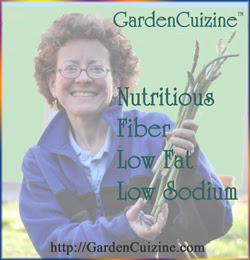Brussels Sprouts are sprouting on restaurant menus across the country. And, in case you haven't noticed, they are a popular selection for Thanksgiving too.
Brussels sprouts provide the body with important nutrients such as dietary Fiber, Folate and Vitamin A. We often think of citrus for vitamin C, but Brussels sprouts are also an excellent source of Vitamin C.
Our favorite way to cook Brussels sprouts is to saute them with a little butter and/or olive oil, salt and pepper; sometimes we add chopped onion. You could also roast them in the oven after tossing them in olive oil, salt and pepper. The key is to cook the small cabbages until their outer leaves get brown and caramelized. And, when they do, the taste is out-of-this-world delicious!
You will see Brussels sprouts sold on the stalk during Thanksgiving in super markets across the country. Being known as a cruciferous or brassica vegetable, Brussels sprouts are among the most beneficial of veggies to eat because they also provide a source of sulfur-containing compounds known as glucosinolates. Glucosinolates are phytochemicals that scientific studies have shown may help prevent diseases such as cancer.
Eating cruciferous vegetables like: Brussels sprouts, broccoli, cauliflower, cabbage, collard greens, kale, kohlrabi, mustard, turnips, radish, watercress, bok choy, horseradish and arugula will benefit your health. Try a taste of caramelized Brussels sprouts, you just may discover another veggie to add to your favorites.
Happy Thanksgiving!
GardenCuizine Brussels Sprouts Nutrition data:
Excellent Source: Vitamin C, Vitamin K
Good Source: Vitamin A, Folate
1/2 cup 78 grams: total carbohydrate 6g; dietary Fiber 2g (8% DV); Vitamin A 604 IU (12% DV); Vitamin C 48 mg (81% DV); Vitamin K 103 mcg (137% DV); Folate 47 mcg (12% DV); Potassium 247 mg (7% DV)
Blog post and photo Copyright (C)Wind. All rights reserved.
Subscribe to:
Post Comments (Atom)






























No comments:
Post a Comment